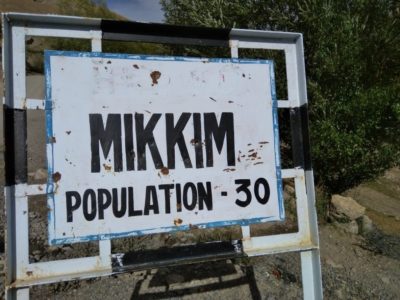The Conservation Optimism Summit is around the corner now and I can sense the excitement building up each day! As a first time attendee, I am even more excited for this summit as I have been hearing and imagining what it will be like from friends and colleagues for a while now. More so, Conservation Optimism really speaks to my ethos both as a person and (hopefully!) as a conservationist. One of being action-oriented and optimistic about our work and success.
Of course, various parts of the summit are going to be interesting and engaging, but I am particularly looking forward to Brisetha Hendricks’ plenary titled “Exploring how communities define CBNRM success in Namibia”. I hail from India, a country of more than a billion people, with countless conservation issues. CBNRM, or “Community-Based Natural Resource Management” is particularly important in countries like my own, where conservation interventions can’t solely be about the species and their landscape but have to include the people as well. So much of our biodiversity lies in close proximity to people and human-wildlife coexistence is a priority in ensuring conservation is just and sustainable.
Often this is the case with many countries of the world, and Namibia is another such example. I look forward to hearing from Brisetha, the role and challenges associated with CBNRM in the Namibian context. I believe there is a plethora of feedback learning and reflection I can gain from it to then apply back home in India. Conservation is a complex issue and the more I delve deeper into its mess within the complex Indian context, it is refreshing to know that people, like Brisetha, agree that approaches such as CBNRM have no “fix-all” strategy. Importantly people are the most important pillar of success in this approach. As my country powers towards being one of the most developed, yet biodiverse, countries, it is imperative to acknowledge that there are instances where conservation efforts trample the interests of local communities, often ones whose voices are least heard.
It is our utmost duty as conservationists to ensure that local voices are not only heard but championed in the path towards conservation. Even if it means including and ensuring the rights of 30 inhabitants of a far-flung village in the Trans-Himalayan landscape of India (yes, there is a village of only 30 inhabitants in the “over-populated” country of India!). I believe that learning comes from engaging with people from diverse experiences and perspectives. Being from Namibia and working in her homeland, I think Brisetha, will provide a fresh and contextual perspective on these mutually important topics. I am excited both for this plenary and the summit!
Have you booked your place at the Conservation Optimism Summit yet? The early-bird discount expires on Tuesday 20th August, get your ticket today!

A sign post at Mikkim village, Himachal Pradesh, India. Villages such as Mikkim are situated in extremely remote valleys of the Trans-Himalayas where conservationists are working towards human-wildlife coexistence. These areas are home to magnificent wildlife such as snow leopard, wolves, mountain ungulates, and are also the water towers for the Indian floodplains.


